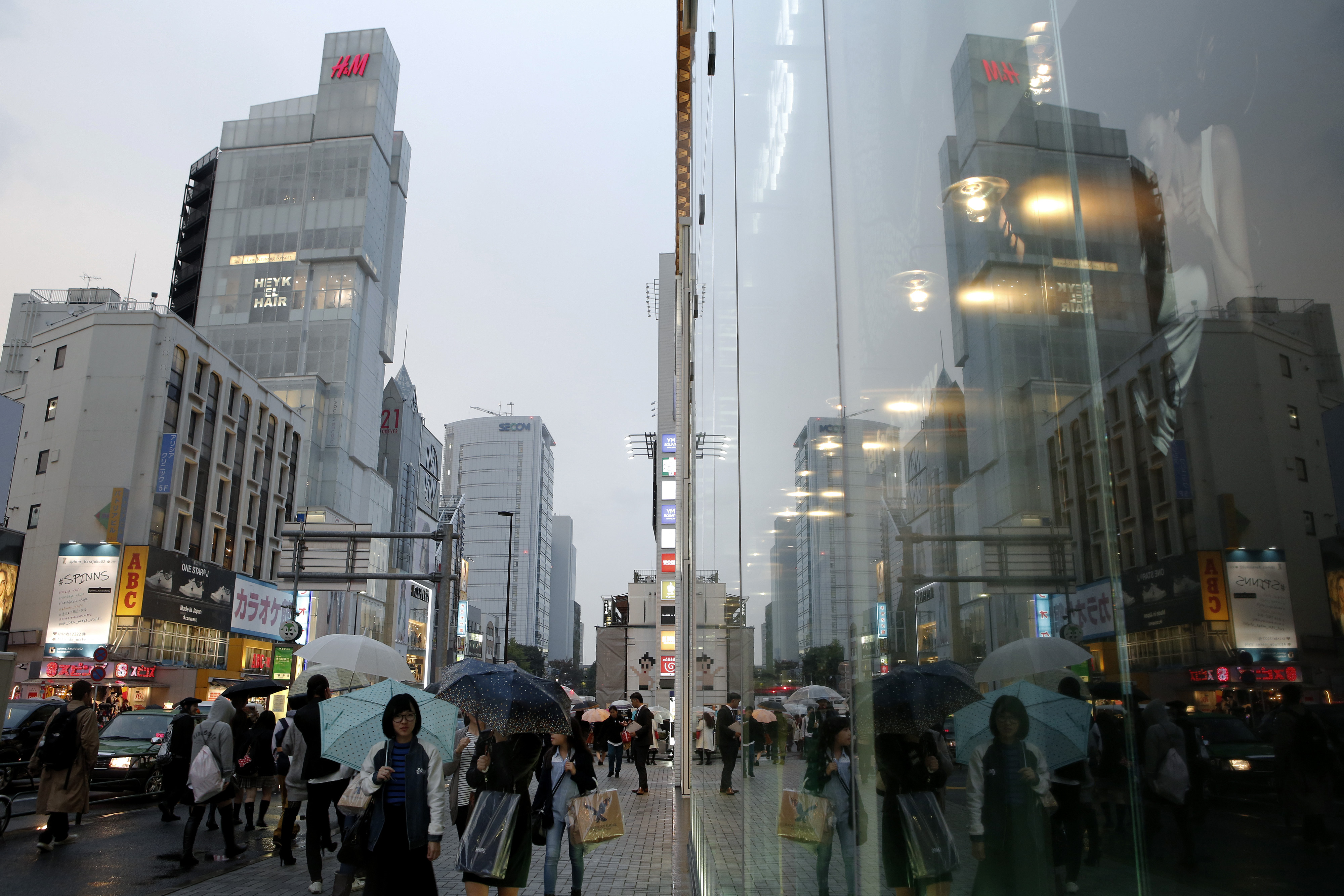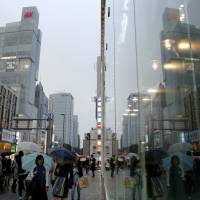Consumer confidence improved for the first time in five months in December, the government said on Monday, suggesting Prime Minister Shinzo Abe's decision to postpone the second stage of the consumption tax hike has eased fears about Japan's economic outlook.
The seasonally adjusted index of sentiment among households of two or more people rose 1.1 points from a month earlier to 38.8, the Cabinet Office said.
The government upgraded its basic assessment of the index for the first time since June, saying consumer confidence "shows signs of bottoming out."
The phrase it used the previous month said it was "seen weakening."
The survey polls consumers on the economic outlook for the coming six months. Readings below 50 suggest pessimism.
All of the index's four components rose in December, with consumers' view on livelihoods climbing 1.1 points to 36.0.
Consumers' assessment of employment conditions gained 1.3 points to 44.1, while their assessment of income growth rose 1.1 points to 38.7 and their near-term readiness to buy new durable goods increased 0.9 point to 36.3.
The Cabinet Office conducted the 5,712-household survey on Dec. 15 and received valid responses from 4,013 of them, or 70.3 percent.
Abe announced in November that the 2-point consumption tax hike to 10 percent would be delayed 18 months until April 2017. The previous hike, last April, raised the levy to 8 percent from 5 percent.
Monday's survey, meanwhile, showed 87 percent of households expect prices to rise in the year ahead, down from 88.8 percent the previous month.
That follows a more than 50 percent drop in the benchmark contract for Brent crude oil futures after it peaked at about $110 in June.
The retail price of regular gasoline in Japan has dropped for 25 weeks in a row to its lowest level in two years and five months, the Agency for Natural Resources and Energy said last week.
Japan depends on imports for around 90 percent of its energy needs.




